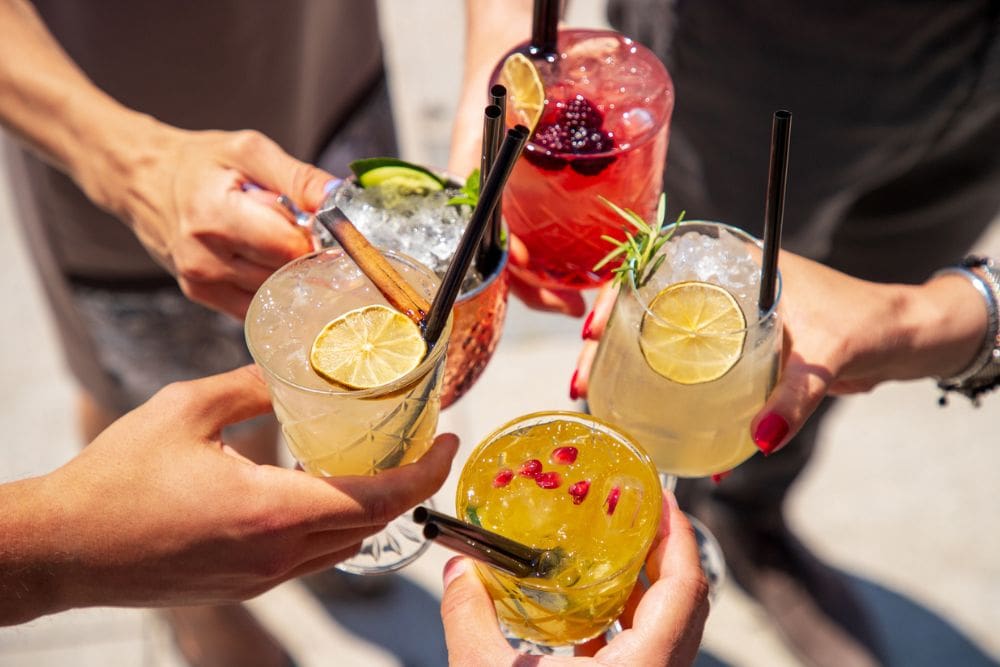When you are recovering from drug or alcohol addiction, you are bound to experience cravings. Perhaps you will experience these cravings late at night, when you might have been accustomed to partaking of alcohol or drugs. Not only did you create a ritual that you were mentally accustomed to, but you’re body became accustomed to it, as well.
Overcoming cravings will take a lot of ongoing effort on your part. You are retraining your body and your mind as you create a healthy new lifestyle that is independent of drugs and alcohol.
While you should be working with a professional on your journey to recovery, you should also be developing personal coping strategies. Here are five things you can do to help you deal with late night drug and alcohol cravings:
Talk Through It
Cravings are not rooted in rational thinking. They are an impulse, and they are rooted in psychological and physical dependency. When cravings strike, you can combat their influence by talking through the situation rationally, either with a trusted friend or through self-talk. Remind yourself that they are only cravings, and that you don’t actually need the drug or alcohol to feel better. Talk through what you know about your body’s withdrawal symptoms and dependency. Talk about the negative consequences of indulging in your craving, such as further damaging your body or alienating your loved ones.
By thinking and talking through your impulses with rationality, you can ride out the wave of the craving.
Distract Yourself
Even the most rational of thinking is not enough to get through a craving sometimes. One way to resist that craving is to find something else to distract yourself and take your mind off your desire for drugs or alcohol. Call a friend who you know will be up late. Watch a movie. Go for a run if your gym has 24-hour access. Read a book.
The important thing is to make sure that you aren’t within access of any drugs or alcohol. If you are, there may not be enough you can do to distract yourself when cravings are strong.
Use Guided Imagery
Many find guided imagery, or visualization, to be a powerful influence for shaping behavior. When you are experiencing cravings, you can try to visualize the craving like a wave. You know that it will grow in strength, but eventually, it will crash and will lose its power. When you feel the grip of cravings for drugs and alcohol, try visualizing your craving in a way that is useful for you, such as the wave or even a small animal that you lock away in a cage so that it can’t hurt you. The key is to find an image that works for you and then focus on that visualization whenever cravings strike.
Make New Associations
Cravings often occur during times that are associated with drug and alcohol use. For example, you might experience stronger cravings on weekend nights when you were previously accustomed to going out with your friends and partying. By making new associations during those times, you can help to curb cravings. For example, you might form a new tradition to go bowling on Friday nights or to get dinner and a movie on Saturdays. By replacing your old, destructive habits with new, healthy habits, you can help retrain your mind to want new things.
Take Care of Yourself
Drug and alcohol use takes a serious toll on your body. Some of the cravings you may be experiencing during your recovery process is your body healing itself. The cravings may be fueled by imbalances in electrolytes and hormones or nutritional deficiencies. By taking care of yourself through eating a healthy diet, exercising regularly and getting plenty of sleep, you can help your body heal faster and make it more resilient to the lure of cravings. Of course, dedicating yourself to health is something you’ll have to do every day in order to reap the benefits, but making the commitment is worth it.
There is no easy answer for keeping your cravings for drugs or alcohol at bay once you have dedicated yourself to recovery and to building a healthier life for yourself. Though these tips can help you to avoid those late-night cravings, you will likely never completely be free of cravings. You will have to work hard to stay sober, and you will have to take a multi-faceted approach to recovery that includes getting the professional therapy or counseling you need and perhaps attending support meetings.
Relying on the support of family and friends can also keep you on your healthy path. If you ever feel yourself struggling with your cravings, have a list of loved ones you can call to help you through those hard times.










